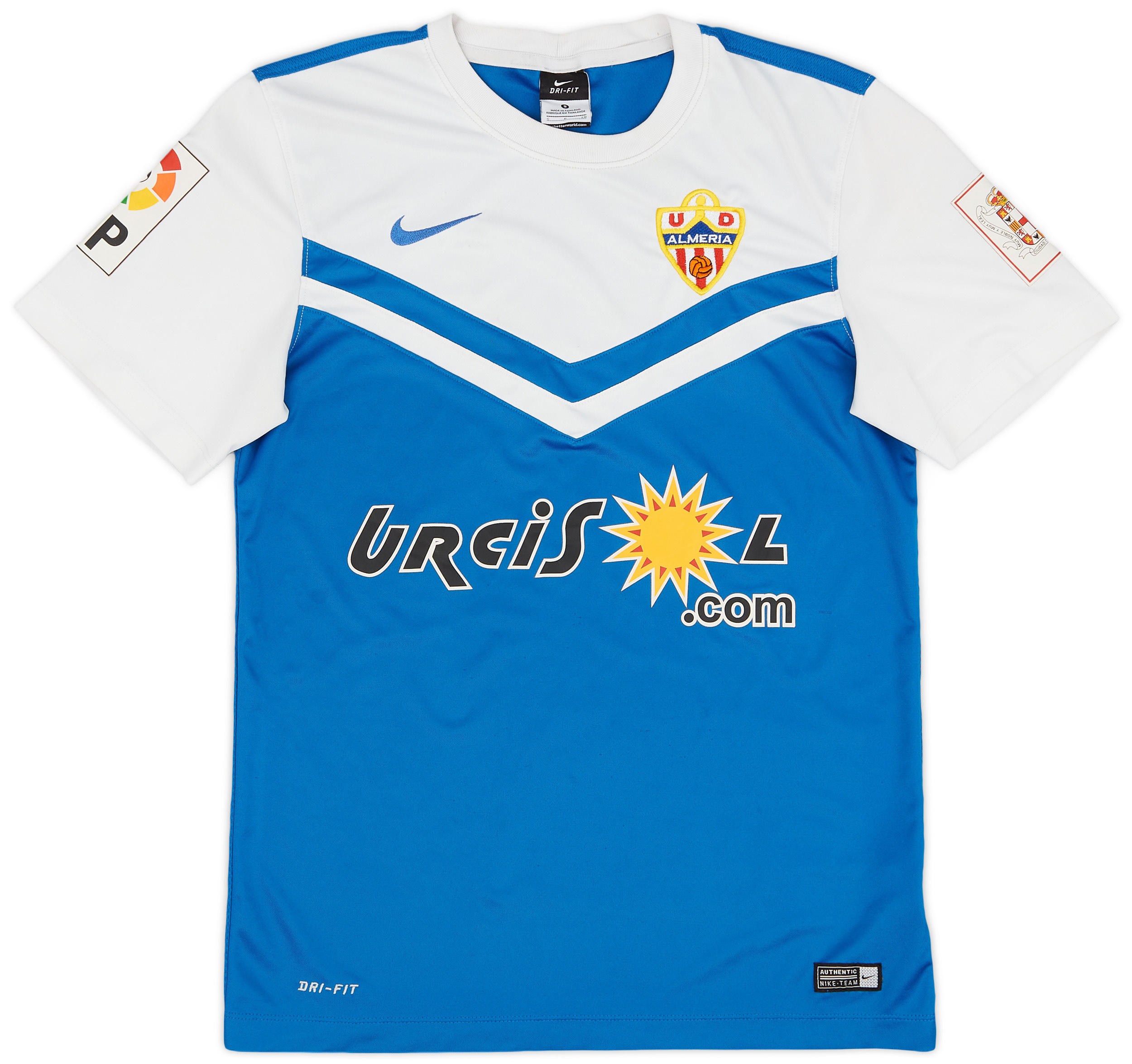Almeria
Introduction Club Unión Deportiva Almería, commonly known simply as Almería, is a professional football club based in the sunny region of Andalusia, Spain. Founded in 1989, the team has rapidly developed a distinctive identity and a passionate following. Almería plays its home matches at the Estadio de los Juegos Mediterráneos, a modern stadium that holds […]
2000-02 Almeria Cejudo Padded Bench Coat - 8/10 - (M)
94.99£ - ca: €112
2014-15 Almeria Third Shirt - 6/10 - (S)
53.99£ - ca: €64
Introduction
Club Unión Deportiva Almería, commonly known simply as Almería, is a professional football club based in the sunny region of Andalusia, Spain. Founded in 1989, the team has rapidly developed a distinctive identity and a passionate following. Almería plays its home matches at the Estadio de los Juegos Mediterráneos, a modern stadium that holds approximately 26,000 spectators. The club’s colors are red and white, symbolizing the vibrant energy and spirit of the Almería community.
Club History
Almería was established on August 20, 1989, born from the merger of two local clubs, El Almería and El Poli. The club quickly ascended through the lower divisions of Spanish football, making its first significant impact in the late 1990s. In 2001, Almería achieved promotion to the Segunda División, and by the 2006-2007 season, they earned their first promotion to La Liga, Spain’s top tier of football. This historic climb marked a new era for the club, heralding its emergence on the national stage.
However, the journey has not been smooth. After achieving promotion, Almería faced the challenges of maintaining their position among Spain’s elite. The club oscillated between La Liga and Segunda División, but with each transition, they have garnered valuable experience that has shaped their development. Almería’s resilience was highlighted by their ability to return to La Liga in 2022 after a two-season absence, showcasing a journey loaded with trials and triumphs.
Achievements
Throughout its existence, Almería has experienced noteworthy achievements. The most significant highlights include a remarkable run in the Copa del Rey, Spain’s premier cup competition, where they reached the quarter-finals in the 2010-2011 season. In terms of league performance, their best finish in La Liga was 8th place during the 2012-2013 season, a milestone that reflected the club’s potential and aspirations.
In the Segunda División, Almería has been successful on multiple occasions, securing the title in 2005-2006 and again in the 2012-2013 season. These accomplishments solidified the club’s status as a competitive force in Spanish football, earning respect from opponents and recognition from fans.
Significant Players and Matches
Over the years, Almería has been home to various notable players who have left an indelible mark on the club’s history. One of the most famous figures associated with Almería is Pellegrini Manuel, who managed the team during their successful debut season in La Liga. His leadership helped the club achieve a remarkable 8th place finish, a testament to his tactical acumen and ability to nurture talent.
Additionally, players such as Diego Alves and Alvaro Negredo have been pivotal in their performances. Alves became renowned as one of the best goalkeepers in La Liga during his time with Almería, while Negredo’s goal-scoring prowess during his stint in the 2009-2010 season was critical for the team’s success. Memorable matches include a 4-0 victory over Deportivo La Coruña in April 2008, which not only showcased Almería’s attacking flair but also solidified its presence in top-flight football.
Cultural Impact
Almería plays a significant role in the local community, deeply entwined with the cultural fabric of the region. The football club fosters a sense of unity among its supporters, creating a vibrant atmosphere during matchdays. The fanbase is known for their unwavering loyalty, turning the Estadio de los Juegos Mediterráneos into a fortress on home game days. This passionate support is a reflection of the community’s pride, as supporters come together not only to cheer for their team but to celebrate their shared identity.
The club also engages in community initiatives, promoting football as a means for social inclusion and youth development. By nurturing local talent through its academy, Almería invests in the future of Spanish football, ensuring that local players have the opportunity to shine on larger stages.
Conclusion
In summary, Club Unión Deportiva Almería holds a significant place in the annals of football history, particularly within Spain’s competitive landscape. From its humble beginnings to its advancements in La Liga, Almería has demonstrated resilience, ambition, and a commitment to community. With a passionate fanbase and a rich history of notable moments and players, Almería is not just a club; it is a symbol of pride for the city and a testament to the power of sport in engaging and uplifting communities. As Almería continues to navigate the challenges of professional football, its legacy grows richer with each passing season.

